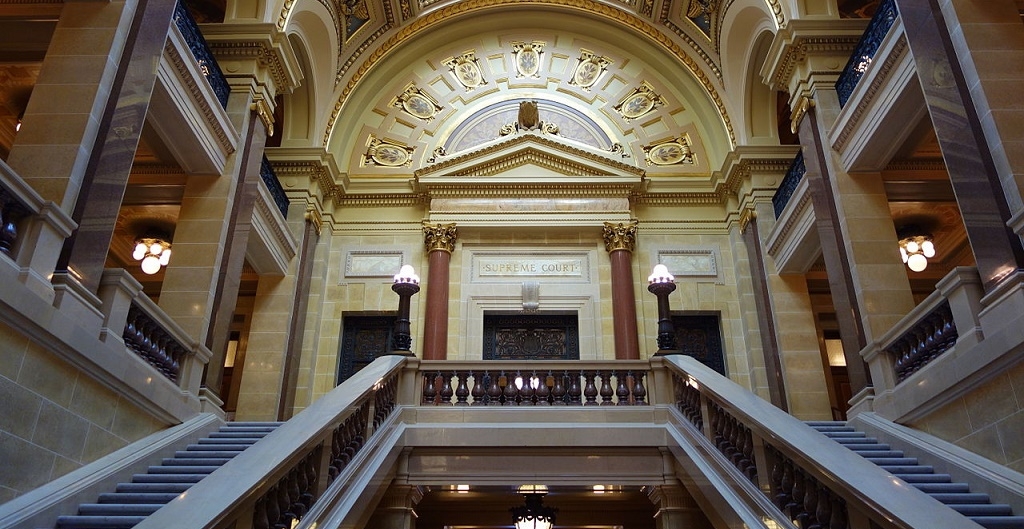Local News
Wisconsin Supreme Court wrestles over open meetings law

Case about drawing clear lines when open-meeting law applies.
MADISON, Wis. — The Wisconsin Supreme Court wrestled with how broadly to apply the state’s open meetings law in a case Wednesday that open government advocates warn could provide a gateway to getting around public access requirements.
The lawsuit was brought by the parent of an Appleton Area School District student who said meetings of a committee charged with reviewing course material for a ninth grade English class should have been open to the public.
The case is about drawing clear lines about when the open meetings law applies, said attorney Rick Esenberg, who is representing the parent who sued the district.
“The open meetings law is not to apply narrowly,” Esenberg told justices Wednesday. “Courts are not charged with finding a way out.”
Christine Hamiel, attorney for the school district, said because the course review committee was created by employees of the district, and not the school board itself, its meetings were not subject to the open meetings law. Hamiel argued that routine administrative functions of government have not, and should not, be subject to the law.
Interpreting the law to say administrative functions are subject to open meetings notices ad requirements would have “vast implications,” she said.
Justices appeared to struggle with how to rule in the case without significantly expanding the open meetings law to apply to routine administrative governmental tasks.
Requiring every meeting of every government employee to be open under the law could “destroy” government, Justice Shirley Abrahamson said during oral arguments of the case.
The public must also be assured that governmental bodies like school boards aren’t finding ways around the law by creating committees that do all of the work outside of the public eye, said Justice Annette Ziegler.
John Krueger, whose son attends the Appleton district, raised concerns in 2011 about references to suicide and sex in the book “The Body of Christopher Creed” that students in a freshman communications arts class read. Krueger requested that an alternative class be offered that included books that had no profanity, obscenities or sexualized content.
Appleton’s superintendent asked two members of the district’s department that handles curriculum and instruction to respond to Krueger’s concerns. Those employees formed a 17-member committee including district administrators, teachers and staff to evaluate books used in the course.
The committee met for five months and forwarded a recommended list of 23 books that could be taught in the course. The school board adopted that list in 2012.
The issue before the Supreme Court is whether a formal committee, created by school district officials and not the school board, is a “governmental body” subject to the open meetings law. That law refers only to “governmental bodies” created by the constitution, law, local ordinance or “rule or order.”
Krueger argued in filings with the court that governmental bodies could evade the open meetings law by having administrators, rather than the governing boards, create committees. The district argued that when a committee is created by school employees it is not created by “rule or order” of the governing body.
The lower courts sided with the school, determining that because the review committee was not created by a directive of the school board, the committee was not a “governmental body” subject to the open meetings law.
Republican Attorney General Brad Schimel, the Wisconsin Freedom of Information Council, the Wisconsin Newspapers Association and the Wisconsin Broadcasters Association all filed briefs in support of Krueger’s argument that the meetings were in violation of state law.
The Supreme Court is expected to issue its decision in the case later this year.

